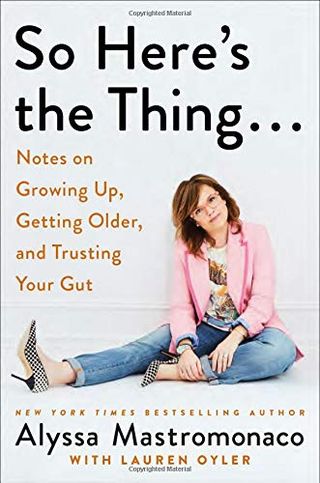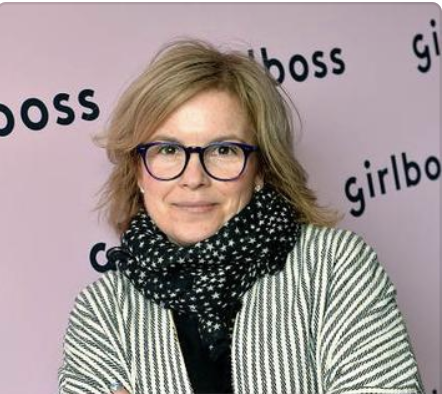Alyssa Mastromonaco Explores Her Non-Decision to Not Have Kids
In her new book, So Here's the Thing, the former deputy chief of staff to President Obama writes candidly about the pressures women face.
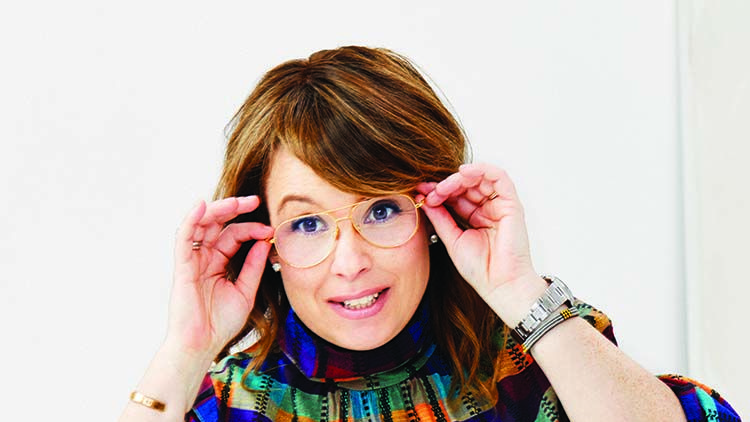
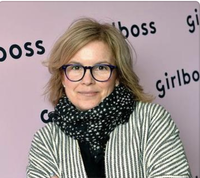
I have to be honest: A woman discussing her decision (if it’s a decision) not to have kids is always so fraught and complicated that I didn’t really want to write about it. Although things are changing, the pressures are still there: You always have to justify yourself. You need a clear reason. There’s not a lot of room for uncertainty. Probably because biology doesn’t leave much room for uncertainty: The clock keeps ticking. And periods! Monthly, often painful reminders that your body can grow a human. That growing a human is technically what it’s for.
I wrote a little bit about not having kids in my first book: about how, on my 35th birthday, I walked into the Navy Mess, and Reggie Love greeted me with something like, “MASTRO! According to CNN, you are officially of ‘advanced maternal age’!” (And I established in the first book that Reggie is one of the most intellectually curious and kind people I know—he wasn’t trying to hurt my feelings, but really just sharing knowledge.) At which point I thought, Fair enough. I wonder if I’m still fertile. I persuaded my beloved gyno to give me an AMH test, which measures the quantity (not quality!) of eggs you’re working with. He didn’t want to do it; they only like to do this test if you are actively “trying.” I really don’t know why I felt like I needed it, but I persisted until he gave in. The range is from 0 to 7, and I was something like a 0.2.
I think I wrote about it at the time mainly to answer the question that’s always in the back of people’s minds when they meet a woman of advanced—or post—maternal age with no offspring to show for it: Why? I can get annoyed with people asking, especially if it’s totally out of context, and especially if I remember that no one really cares if men stay childless bachelors playing video games in their underwear for their entire lives, but I also think it’s understandable that people want to know. Even though things are changing, having kids is the default.
I never dreamed of having a wedding. But I did always think about having kids. When I envisioned my future, I put kids in there.
Still, I didn’t really examine my feelings about not having kids at length, except to say that I wasn’t particularly sad about it and that I was kind of happy to have the decision taken away from me. I didn’t get into how other people treat you when you’re a woman who doesn’t have kids, or what not having them, in this culture and in this world right now, means for how you come to see the second half of your life. Which you also can’t really believe you’re in.
When I was in middle school, I was obsessed with names. I think mostly because nobody had my name. (Yes, in 1976 “Alyssa” belonged to me and then-4-year-old Alyssa Milano.) My mom told me that I was named after one of her favorite campers she met when she was a camp counselor. When I asked her what that Alyssa was like, my mom said she was fun, easy to be around, and a very can-do girl—which is basically what I felt I was. I became obsessed with making sure my future kids would have names that set them up to become the life of the party, successful, and rich. Any time I encountered a name that seemed up to this task, I would write it down in a notebook I had for this purpose. I remember the names that topped the list were Persephone, Marley, and Eden.
Since I never had many boyfriends in high school or college, I never dreamed of having a wedding. But I did always think about having kids. What do I mean by “think about”? I don’t mean fantasized about, necessarily, or yearned for them. It’s just that when I envisioned my future, I put kids in there.
I graduated and had a fun life, full of surprises and twists and turns and things I couldn’t have done if I had been too worried about locking down any one aspect of my existence, including kids. I moved to New York City, then Boston, then D.C. That’s when I felt like I was fully living my dream: I was working for John Kerry. What more could I possibly want than to sit at the front desk and answer phones for $20,500? I’m not even joking!
Get exclusive access to fashion and beauty trends, hot-off-the-press celebrity news, and more.
That’s also when I met Doug*. He (1) never wanted to get married and (2) never wanted to have kids. He was very clear about this. I didn’t care about the first issue; the second issue seemed so far in the future for me as to be irrelevant. In what felt like no time at all, after all the months of waiting around for a job in politics, all the rejections I’d gotten, I’d gone from being ecstatic at the opportunity to work as a lowly general assistant to being a senior member of Kerry’s team. I couldn’t think about anything besides what was directly in front of me.
Then, all of a sudden, when I thought I was going to have to sign up for unemployment because John Kerry had lost the election and we weren’t going to the White House, Barack Obama called.
RELATED STORY
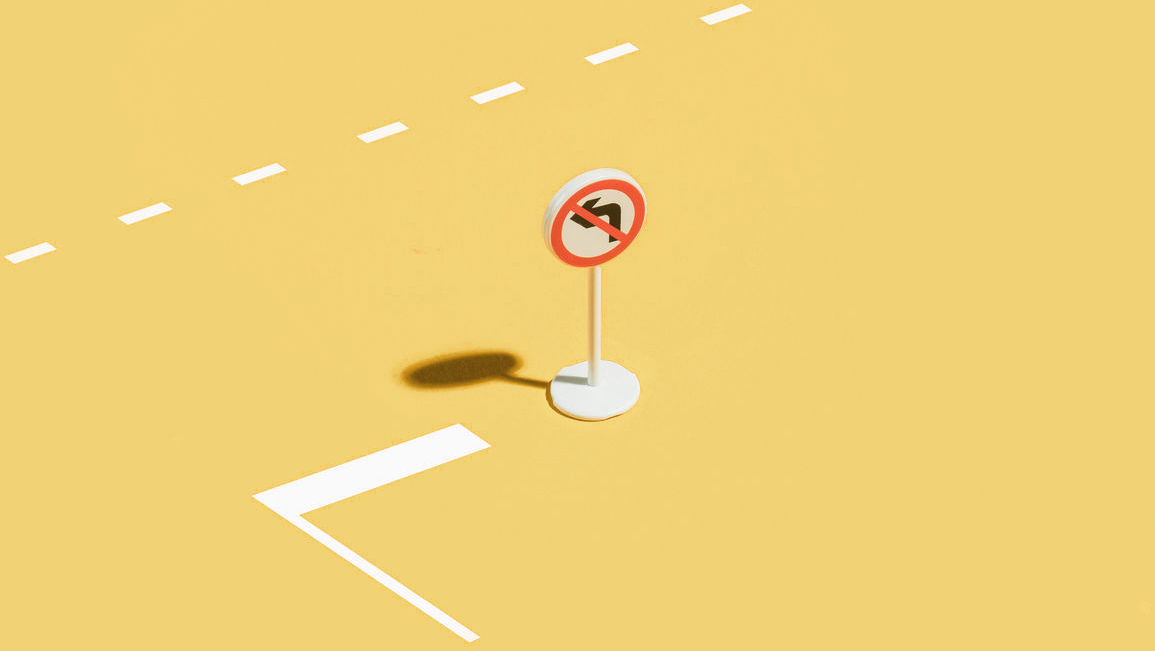
This is going to sound basic, but our thoughts and feelings don’t come from just one source. There are many reasons we feel what we feel and think what we think. Timing is a big one. The people we have around us is another. I was never not present at work those days. I continued to feel like I was living my dream, and like I couldn’t let down Barack Obama, whom I so admired and respected. He—and my other bosses—believed in me and were giving me a shot. I didn’t want to blow it. You could say my work was my life, but I wasn’t thinking of it in those terms. It was more that what I wanted to be doing with my life and my life were aligned. Even when my gums were bleeding from stress. I never thought my dream life would be easy, or without problems.
I always felt wildly lucky.
But it wasn’t as if I didn’t notice I was getting older—even if I didn’t see the changes in my face and body, or note the passing of each birthday, people love to comment on it. Even well-meaning people. When Doug and I broke up in 2005, I was 29. In those days, and in D.C. especially, 29 was not the 29 it is now. Turning 30 was much more of a thing. People thought you should get married and have kids even if you were obviously too busy, too broke, and too single to be thinking about it. I paid nervous attention to all the new talk about how women, focused on moving up in their careers, were now waiting too long to have kids. I wondered if that was going to happen to me. But it wasn’t something I lost sleep over. I didn’t have anyone to have a kid with, and I didn’t have the money or time or strong enough desire to be a single mother. I guess you could say I was choosing to put my career ahead of having a family, but I really wasn’t thinking in those terms. I felt like I had made choices throughout my twenties in order to get to the career I wanted, at which point I was just living my life.
I paid nervous attention to all the new talk about how women, focused on moving up in their careers, were waiting too long to have kids. I wondered if that was going to happen to me.
And then Reggie forced me to reckon with it. Once he said the phrase, the blaring factoid kept flashing bright in my brain: advanced maternal age!
I got the news about my (lack of) fertility just after I’d landed from a trip to Afghanistan and was at a party at the Italian or French embassy—can’t remember—for the Elle Women in DC annual soiree.
I stepped outside, took the call, and went back to the party.
I can’t say I wasn’t rattled—it was strange to get a call saying that there was basically nothing going on in my womb and nothing ever going to go on down there. All those horrible period cramps and painful chin zits for 0.2?
Still, I didn’t feel the world coming to an end. I was very fulfilled. I had just gone to Afghanistan and was at a party at the French or Italian embassy. That was that. My life was going to go on, just without a kid in it.
Today, I mostly feel the same way: I think not having a kid is right for me. I don’t ever have to stay in a job I hate, and can take big risks without worrying about how they’ll impact my family. I can still travel a lot, on short notice, and my indecision about whether I’ll ever go back into politics affects no one but me (and DK [my now-husband], and the cats, both of whom can handle themselves) and the people I talk to about it. It would be much harder for me to pick up work on another campaign if I had a toddler running around.
I can’t imagine being pregnant anyway. My lifelong stomach problems make the idea of messing around anywhere near that area simply not appealing. I’m sure there are lots of graphic blog posts about dealing with IBS and pregnancy, but I’m never going to go through it, so I’m not going to go there. Godspeed to anyone who does. I also never considered IVF, or a surrogate, or any of the new technologies that have allowed people who really want a child to have one. Besides the whole pregnancy thing, that stuff—IVF—never really interested me. It seemed like so much work, and I already had so much work. And also disappointment. People who know me know I really don’t manage disappointment well. Which I have to assume means I don’t really, really want to have a kid.
But. But! This is the thing everyone wants to know:
Am I sure?
Well, no. And I don’t know why.
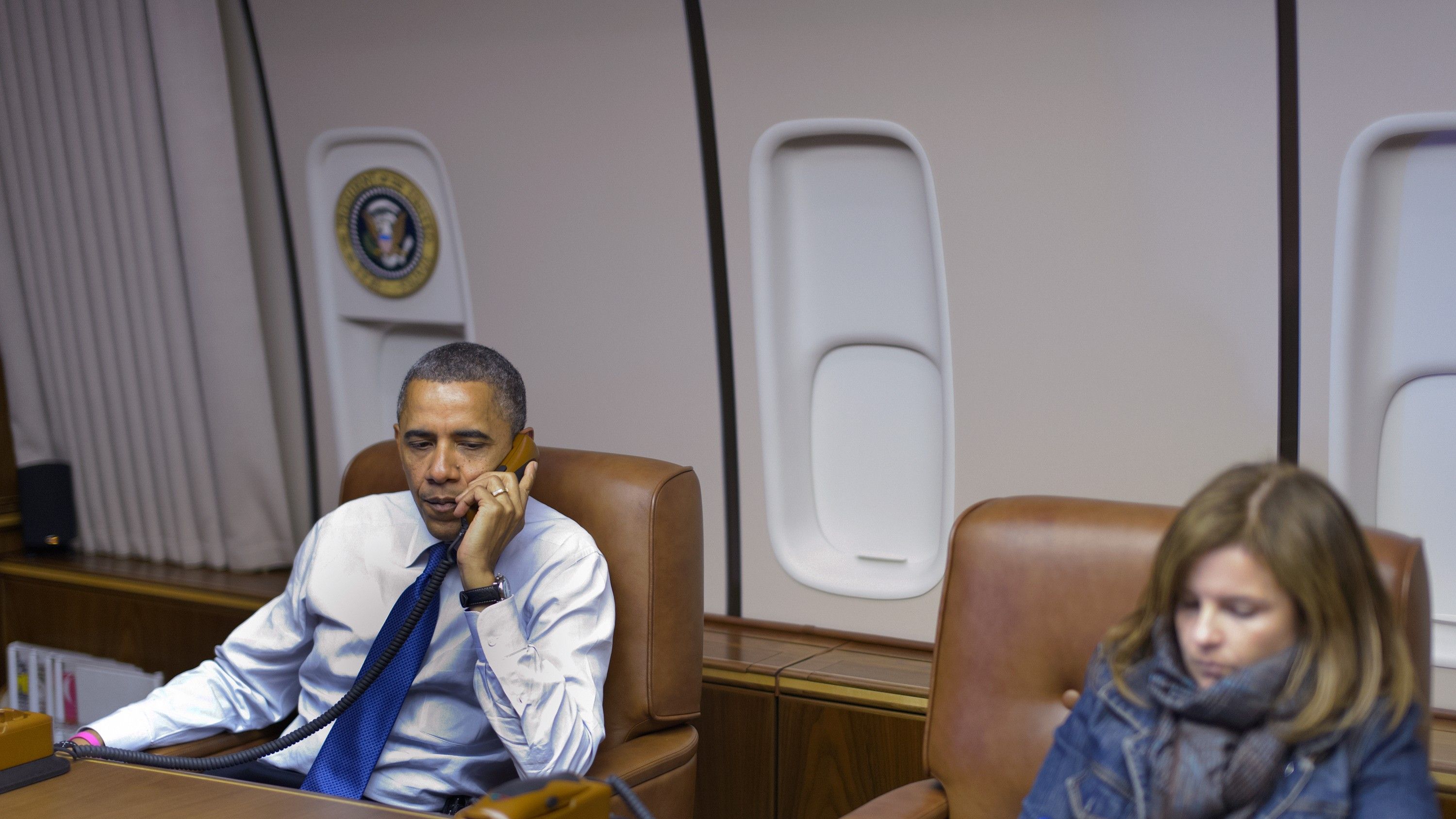
'President Obama speaks on the phone from Air Force One on October 24, 2012; the author, then–deputy chief of staff, flies along with him.'
The most unexpected side effect of leaving the White House in 2014 was the sudden sense that I was no longer needed. I had withdrawal from not seeing the WH family every day, for sure, but although I’d expected to feel carefree, light, and enthusiastic about waking up after 8:00 AM, I just felt unimportant. What was the point of me anymore? It was what I imagine empty-nest syndrome feels like.
So of course that made me think that I (we) should maybe have kids. Though I can’t physically have one (barring divine intervention), we could always adopt. After the White House, I also had a lot of time on my hands, trying to figure out what to do next, and having a kid would definitely have been something to do.
There was also a growing sense that, if I wanted to be truly successful, I needed to have a kid. If you think of life as like a video game, I beat “career,” and now kids are the next level. I’m a successful person who wants to do things better than everyone else does them. Not in a competitive-with-other-people way—I’m competitive with myself. And our society tells you that “having it all” as a woman, despite being widely acknowledged as impossible, means happily balancing career and kids. There’s an idea that motherhood is what makes you into your complete self as a woman.
There was also a growing sense that, if I wanted to be truly successful, I needed to have a kid.
There are also other pressures. When I make plans with friends who have kids, I feel like my schedule suddenly loses all meaning. Though I think I convince myself of this more than anyone actually puts it on me, if I have a conflict on the one day a week that a mother has free, I move my appointments around, and I do it happily. I feel like I should always qualify any complaint about how busy I am with something like, “I know my problems are nothing compared to how hard you”—subtext: a mother—“must work.” And it’s not wrong, necessarily.
I wonder, too, if people ask me to do work for them so often because they know I don’t have kids. When I would tell people I couldn’t do a speech or attend an event because I was working on this book, for example, I got a sort of eyerolling pushback. But I know that if I said, “Sorry, I can’t participate on the panel this week because my daughter has piano lessons and then we’re doing a family dinner,” I would be met with resounding understanding and “Say no more!”
The bigger anxiety, though, is that I’m a second-tier person in people’s lives. And it’s not totally projecting. This is a reality, not a complaint. I’m not not a second-tier person in people’s lives. I would hope your kids are first tier!
RELATED STORY
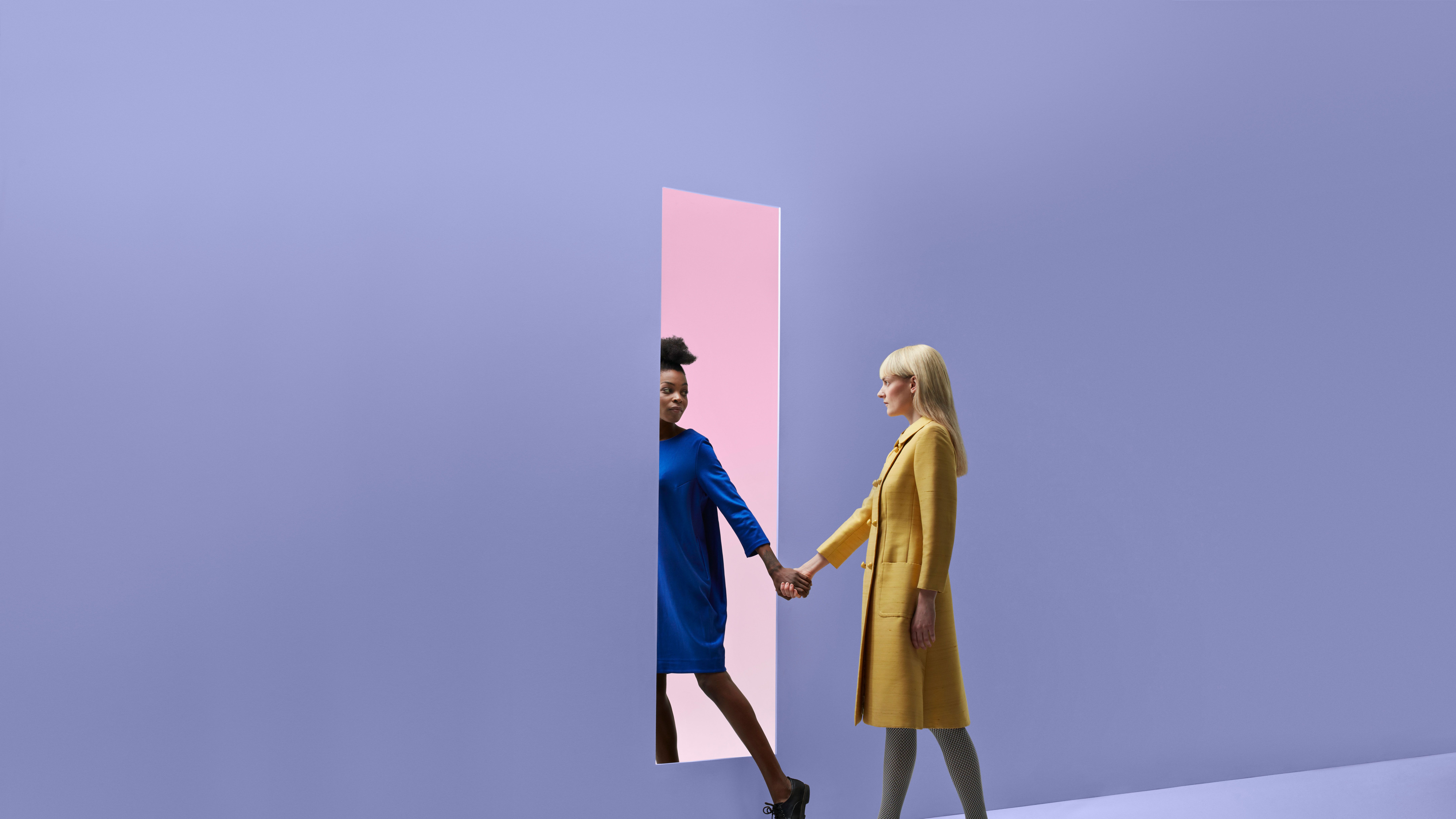
Of course, I know all this isn’t what’s really important in the decision. You don’t need to be a mother to be a “complete” woman. (There’s no such thing.) Life is not a video game. Feeling unneeded is not a good reason to have a baby. Wanting something to do is not a good reason to have a baby. A baby is not a “project”—a baby is a human.
As I’ve been writing this, I’ve worried that any of my kid-negative comments—“snotty” is a telltale anti-kid word, but they literally are! You don’t learn to control your own snot until at least age 14 for girls, and much later for boys!—will incite outrage among mothers. How dare I criticize their choice? It’s as if you can’t talk about what’s right for you, what your feelings are, without implying that every other woman should share them. (I notice that men don’t have this problem.)
On the flip side, there are the people—never actual friends, but people I barely know—who sit me down and say, in their most seriously sympathetic voice, “Alyssa, it’s not too late.” I know they mean well—they just want me to be as happy as they are. But the most important consideration in having a kid is whether it’s right for you specifically, not some random woman you meet at a conference. I am also very aware that I have “options.” How could I get so far in my life and career and not understand that I have “options” if I want to have a child? The idea that I’ll one day wake up and regret not having a kid suggests both that I don’t know myself and that having a child is a rite of passage that everyone should experience. If I do wake up and regret it, it’s not really anyone else’s business.
The question isn’t resolved. Having a kid is making a decision and setting a clear path: kid, for 18 years, plus all the shit they do in college that you have to bail them out of. That’s your main priority, or at least one of your main priorities. When you don’t have one, the path could go in many more directions. Including what some might consider the excessive acquisition of rescue cats. And including, actually, eventually having a kid. I never want to say, flat out, that I don’t want one, because these cultural and social pressures make it so difficult to determine what you actually feel. If I wake up one day and feel like I need to adopt something larger than a large Persian cat, is it because I actually want to, or is it because I watched my sister, my bestie from Copake, and my veterinary neurosurgeon/Godsend all have children this year, and, yeah, I’ll be honest, I felt kind of bad? Not betrayed, but left out, or missing out, and somehow abandoned.
I still lean toward no. I think that if I really wanted one, I’d know it—that all this wavering and analyzing wouldn’t matter, because my desire to have a kid would supersede any sense of the downsides. I’m a huge champion of gut feelings, and mine have never led me astray before. So why is this the only thing I can’t be 100-percent sure about?
I still keep a list of names I like for future kids. Now they’re a little more playful, since the likelihood I’ll use them is much smaller, but I do still have it, and in my phone instead of a notebook. It mainly functions as inspiration for what to christen the new cats, but also as a reminder that I don’t need to stop thinking about it just because I’m passing advanced maternal age and into the perimenopausal unknown. And because names are fun.
Daphne
Gussie
Ina (love her)
June
Alberta (Bertie)
Marlease
Cassidy (appears in lots of Grateful Dead songs)
Kit
Minna
Whitney
Margot
Wren
Yetta
Crosby
Zeke
Gus
Albert
Woody
Archie
Levon
I would like to request that judgment regarding my name-taste be reserved for my close friends and family. For example: One night in Chicago, I went out to dinner with three friends and after a few—many—drinks we began talking about baby names. I know: Could we be any more cliché? After I revealed that I kept a list of my favorite names, the others were desperate to know what they were. When I finally revealed my top pick at the time—Levon—one friend scrunched up her face. Absolutely not. What?
I had no idea what her beef was. “Levon Helm is a guitar player!” I cried, probably waving a martini around. “The Band? Hello? It’s also my favorite Elton John song? I listen to it every New Year’s Day?”
She explained to me the pitfalls of the name Levon as she saw them. This is what friends are for. And maybe another indication that having a kid is still a very theoretical prospect for me.
*Not his real name.
Alyssa Mastromonaco was White House deputy chief of staff for operations from 2011 to 2014 and is a contributing editor to Marie Claire. The above is an excerpt from her new book, So Here's the Thing, from Twelve Books, on shelves March 5, 2019.
For more stories like this, including celebrity news, beauty and fashion advice, savvy political commentary, and fascinating features, sign up for the Marie Claire newsletter.
RELATED STORY
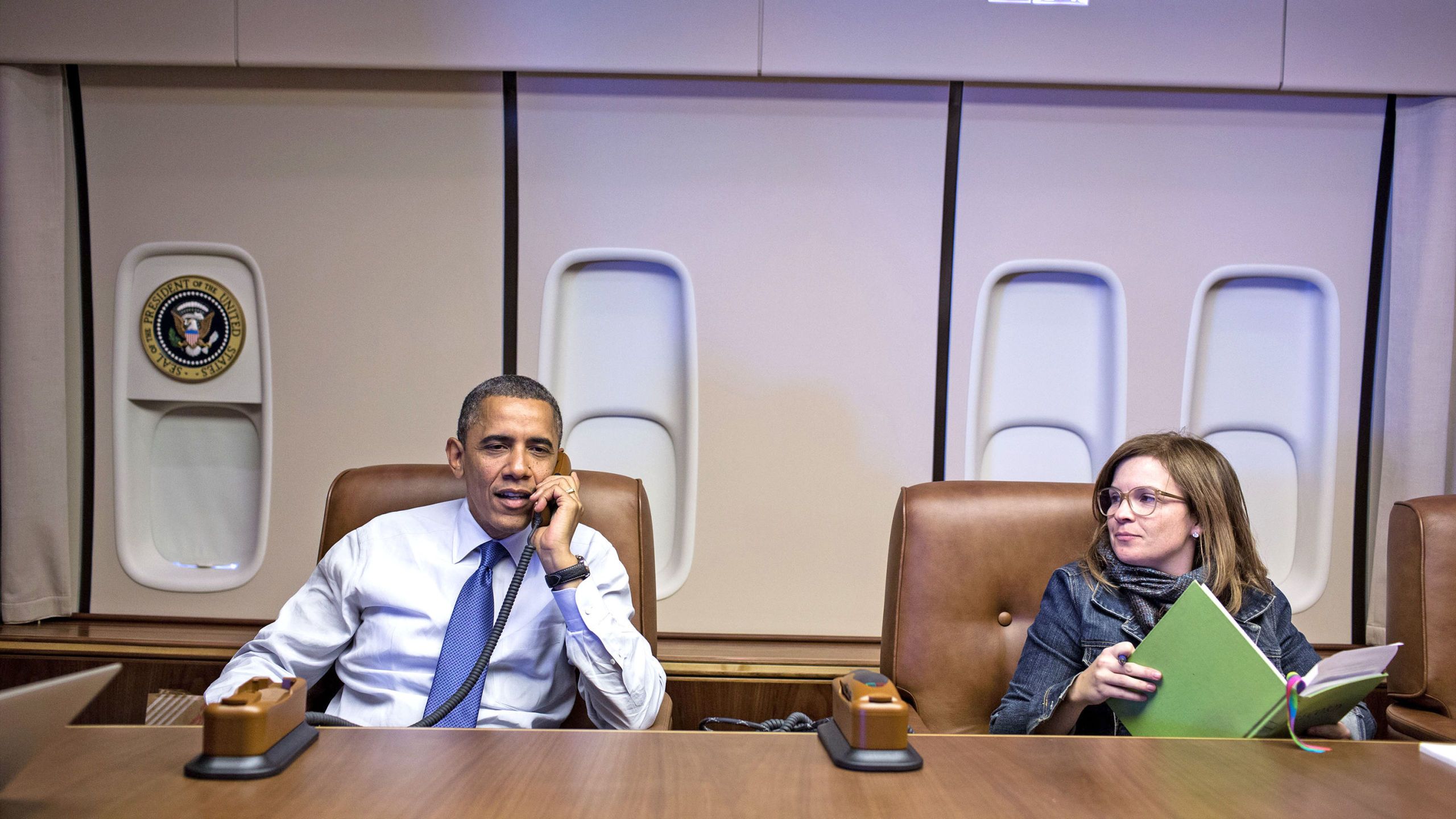
In her new book, So Here's the Thing, the former deputy chief of staff to President Obama writes candidly about the pressures women face.
